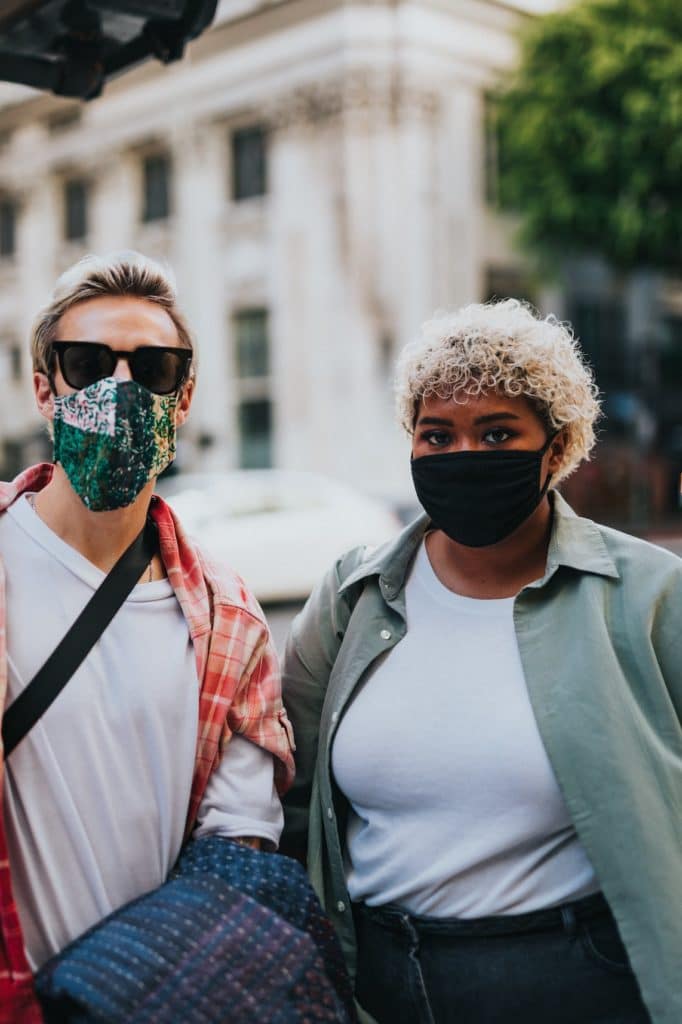4 Min Read
Preventing COVID-19 Burnout
Uncertainty and fear of the novel coronavirus outbreak in the United States can be overwhelming. It’s healthy and justified to experience a complex range of negative emotions during this time, according to the World Health Organization. In a recent report from the Psychiatric Times, researchers Nidal Moukaddam, M.D., Ph.D., and Asim Shah, M.D. noted that “mood problems, sleep issues, phobia-like behaviors, and panic-like symptoms” are likely to increase, especially among those with pre-existing mental disorders.
The ongoing COVID-19 pandemic exacerbates pre-existing stressors and adds its own unique set of challenges. Caregivers, health professionals, and essential workers must balance supporting their family members, colleagues, loved ones, and themselves. The presence of burnout and other mental health conditions among health professionals isn’t new. According to the National Alliance on Mental Illness (NAMI), the prevalence of mental health and emotional problems among healthcare, childcare, and human services workers compromises access to care, patient safety, and care quality.
Your responses to COVID-19 can depend on your background, individual risk factors, stage of life, and community. According to the Centers for Disease Control (CDC), individuals who may respond more strongly to the stress of the novel coronavirus include:
- Older adults and individuals with chronic health conditions, such as heart disease, who are at higher risk for the complications of COVID-19
- Young people, including teenage- and adolescent-aged individuals
- Healthcare providers, healthcare facility staff, substance abuse counselors, and others working on the frontlines of the pandemic
- Individuals with pre-existing mental health conditions, such as substance abuse disorder and bipolar disorder

What is burnout?
Burnout happens when you’re feeling overwhelmed, drained, and unable to keep up with constant demands. For essential workers like social workers, counseling staff, and healthcare providers, the ongoing COVID-19 pandemic poses new challenges and stressors that can lead to high levels of stress, placing workers at a high risk of burnout.
Symptoms of Burnout
You may be at risk for burnout if:
- Every day feels like a bad day.
- You feel apathetic toward your personal life or work.
- You feel like you never get enough sleep or have enough energy.
- You find it difficult to maintain a sense of optimism.
- You feel like your hard work doesn’t make a significant difference.
- You’re suffering from compassion fatigue.
- It feels impossible to find a comfortable balance between your personal life and work.
The symptoms of burnout affect everyone differently. If you’re experiencing one or more of the following symptoms—either to an intense degree or over an extended period—you may be experiencing burnout.
- Sadness, depression, or apathy
- Frustration or irritability
- Inability to think clearly
- Low sense of self-efficacy
- Poor self-care or ignoring your physical health
- Social isolation and disconnection from friends and family members
- Feeling like a failure

Find a Therapist to Help With COVID-19 Burnout
Get personalized matchesWhat should you do if you’re on the road to burnout?
Given the stress and uncertainty of the coronavirus disease and the events surrounding it, it may be impossible to avoid burnout and long-term trauma.
Burnout can take a severe toll on mental health, and suffering from exhaustion leads to a higher risk of further emotional problems and mental health problems, such as substance use disorders. If you’re suffering from burnout, the following strategies can help you normalize your feelings and mitigate the impact of stress.
- Connect with others. Bottling up your feelings will only exacerbate stress, and opening up to your friends and family members can allow you to share your feelings, behaviors, and experiences toward COVID-19. If you’re meeting in person, make sure to follow the recommendations on social distancing and the use of cloth face coverings outlined on the CDC website. Additionally, consider seeking support through a NAMI family support group, joining NAMI Basics, or calling the NAMI Helpline for free access to mental health services and educational resources.
- Practice self-care. Making a positive change in your mental health starts with your physical health. Make self-care a priority by eating a balanced diet, maintaining a regular sleep schedule, exercising, and intentionally creating personal time for the things you enjoy—whether that’s art therapy, travel, social activities, or scheduling an online therapy session with therapy dogs.
- Take time off from work if you’re dealing with high levels of stress. When you recognize the warning signs of burnout, pushing yourself through difficult situations to continue working will make your condition worse. It can be difficult for health professionals and other essential workers to take time off from work right now, but using sick days can help you recharge. Besides spending time away from a stressful work environment, consider taking time off from social media and giving yourself a break from the latest news on COVID-19.
- Seek professional help. In response to COVID-19, relaxed HIPAA regulations have increased access to mental health services and online therapy programs. Between couples therapy, family therapy, talk therapy, and group therapy, attending remote therapy sessions is the best way for individuals struggling with burnout to access different types of therapy and maintain relationships from a distance. Working with a mental health professional can help you understand your mental health needs during this time.

How to Find Help
If you’re struggling with high levels of stress or if you’ve been diagnosed with a pre-existing mental illness such as bipolar disorder, you may be at high risk of burnout. Studies have shown that epidemics tend to induce stress, posing risks for mental health, substance abuse, and emotional problems.
If you’re thinking about harming yourself or experiencing a mental health crisis, contact the National Prevention Suicide Lifeline (800-273-8255) or Crisis Text Line (text HOME to 741741) for immediate mental health support.
Whether you’re on the road to burnout or experiencing the symptoms of burnout, it’s important to seek help. If you’re unsure where to start, consider reaching out to a mental health professional through WithTherapy. WithTherapy’s unique matchmaking service will connect you to a qualified mental health professional you feel comfortable with, regardless of your personal preferences and requirements. One of the mental health experts on the WithTherapy platform will help you learn healthy coping strategies and combat burnout.
Find a Therapist to Help With COVID-19 Burnout




